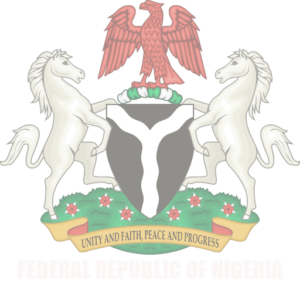
NIMC, from the 24th of March 2020, temporarily suspended all enrolment activities and other ancillary services across Nigeria.
The decision became a necessary precaution for the safety of people visiting NIMC offices for National Identification Number enrolment as well as for NIMC staff in the face of the fast-spreading global coronavirus pandemic.
All around the world people are taking steps to protect themselves as much as they can from the pandemic and information plays a vital role in their efforts.
Take a little time to learn more about the COVID-19 Coronavirus so you can better protect yourself, family and friends.
What is a Coronavirus?
Coronaviruses belong to a family of viruses which affect people, and other animals, and cause infection of the respiratory tract. Such infections include the common cold, SARS, and others.
What is the COVID-19 Coronavirus?
The COVID-19 coronavirus is a newly discovered (“novel”) virus which infects people and spreads rapidly. While a majority infected people tend to recover from the COVID-19 coronavirus disease, a large number of people across the globe have also died from it. The virus is spread between humans via droplets of an infected person’s saliva or nasal discharges when the person is coughing or sneezing. A person becomes infected by breathing in these droplets or by coming into contact with with them when touching an infected person or contaminated objects and surfaces. There is currently no vaccine or cure for the disease, preventive measures are the best way to combat it.
What does the COVID-19 Coronavirus do to a Person?
In most cases, the symptoms of the COVID-19 begin to appear between 1 to 14 days (usually after 5 days). The common symptoms are fever, tiredness, dry cough, sore throat, difficulty in breathing, body aches and pains, as well as runny nose and diarrhea in some cases. While sneezing does spread the infection, it is usually not one of the symptoms indicating a person has the coronavirus disease.
Coughing and fever are as a result of the lungs’ air passages becoming infected by the COVID-19 virus. If the infection gets worse, the lungs can become flooded with fluids causing pneumonia which could be fatal. Elderly people and those with underlining health problems tend to face a higher risk if infected.
What Steps can a Person Take Against COVID-19 Infection?
- Wash Your Hands Regularly and Thoroughly
You touch a lot of things with your hands all the time and the COVID-19 virus tends to stick to your hands like oil droplets on contact. Just like with washing off oil, you need to regularly wash your hands thoroughly with soap and water or use hand sanitisers, killing the virus. - Avoid Exposed Coughing and Sneezing
Cover your mouth with your bent elbow or some tissue paper when coughing or sneezing.
Keep a safe distance away from people coughing and sneezing as the COVID-19 virus can spread through droplets coughed or sneezed out. - Try Not to Touch Your Face So Much
Take special care not to touch your eyes, nose and mouth with your hands (especially unwashed hands) as contaminated hands can spread the virus into your body this way. - Avoid Unnecessary Gatherings of People
Do not join tight groups of people crowded in a place as the virus can spread easily from person to person infecting you and others.
You might also bring the infection back home to your family and friends. - Pray for the Best, Be Positive
Try to stay calm and don’t panic.
Be wary of false stories and misinformation shared over social media.
If you or anyone close to you is feeling sick, seek medical assistance appropriately.
The Nigeria Centre for Disease Control can be alerted by calling 0800 9700 0010.
Click on the image below for the full-size COVID-19 health safety tips poster
Can Wearing Masks and Gloves In Public Prevent Infection?
Wearing medical masks and gloves out in public do not necessarily prevent a person from becoming infected with the coronavirus disease, but masks can help reduce risks of infection when people have to move around in crowded places or areas with widespread transmission. The masks are ideal for the elderly who are more at risk and also for infected persons so they don’t spread droplets when sneezing or coughing. They are also for medical professionals or anyone else dealing with infected patients, and the masks have to be carefully removed and disposed of afterwards as touching them from the outer parts could lead to infection. Likewise gloves can become contaminated just like a person’s bare hands and spread the COVID-19 infection if the person wearing them touches his or her eyes, nose or mouth. Other exposed parts of the body could become contaminated as well.




